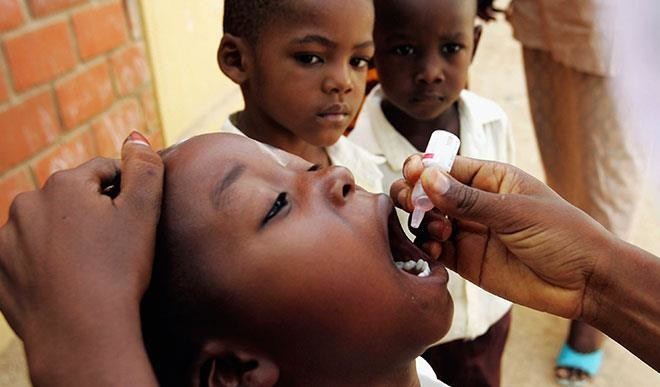Achieving polio-free status
In what is obviously a major feat, Nigeria was on June 18, 2020 declared polio-free by the World Health Orgnisation. In a tweet to announce this feat, the WHO office in Nigeria said the country had completed documentation for wild polio-free status and that the documentation has been accepted by the African Regional Certification Commission […]

In what is obviously a major feat, Nigeria was on June 18, 2020 declared polio-free by the World Health Orgnisation.
In a tweet to announce this feat, the WHO office in Nigeria said the country had completed documentation for wild polio-free status and that the documentation has been accepted by the African Regional Certification Commission for polio eradication.
It said: “This is a historic day for Nigeria, Africa and the global polio programme’’ adding that “it has brought the world one major step closer to ending polio for good.’’
Since 1988 when the World Health Assembly declared the virus a disease of international concern that must be eradicated by year 2000, the incidence of polio has been reduced by more than 99 percent according to WHO.
The declaration is obviously a relief to many Nigerians as it removed a very embarrassing situation we had to contend with for many years.
Nigeria was the only country in Africa and among the only three in the world that had been unable to eradicate the disease.
The certification also came at a time when the country is battling with the scourge of COVID-19.
In a statement on June 22, 2020, President Muhammadu Buhari congratulated all Nigerians on what he called the “joyous and historic occasion’’.
Buhari, in a statement by his spokesman Garba Shehu, thanked all partners, local and international, for their relentless efforts in ensuring the clean health bill.
He said the achievement reflected the resilient spirit of Nigerians, particularly the capacity of the hardworking men and women in the health industry, who drew resources and support from multiple sectors “to deal a final blow to the deadly virus’’.
The story of polio in Nigeria has been long and controversial. Over the years, efforts to eradicate the disease have been met with various obstacles ranging from parents, who did not believe that the disease existed and refused to submit their children to be immunised to some community and religious leaders who often give misleading information about the virus.
The situation got worse with the botched trial by the pharmaceutical giant, Pfizer, who carried out unauthorised trial of a polio vaccine in Kano, which led to the deaths of a number of children.
Furthermore, the insurgency in the North East led to the killing of many health workers engaged in administering polio vaccine.
In the end, the region became the major block to attaining polio-free status for the country.
However, in all these, there was the determination of successive governments at all levels, including development partners, non-governmental organisations, religious and traditional rulers to ensure success in the fight against the disease. It is heart-warming to see that the combination of all these efforts have not gone in vain with last week’s announcement.
Thus Nigeria’s fight against polio, though slow and riddled with unnecessary controversies, had shown that a combined effort of government and the citizenry could surmount any problem the country faces.
It is our hope that the strategies used and lessons learnt to achieve this feat could be studied and improved upon to tackle similar health and other related problems facing the country.
Governments must at all times explore all avenues and opportunities in individuals and organisations in handling issues of national and local concern.
We also want to commend both local and international organisations, traditional rulers, religious leaders as well as individuals who assisted the country in saving its future generation from the devastating effect of polio myelitis.
